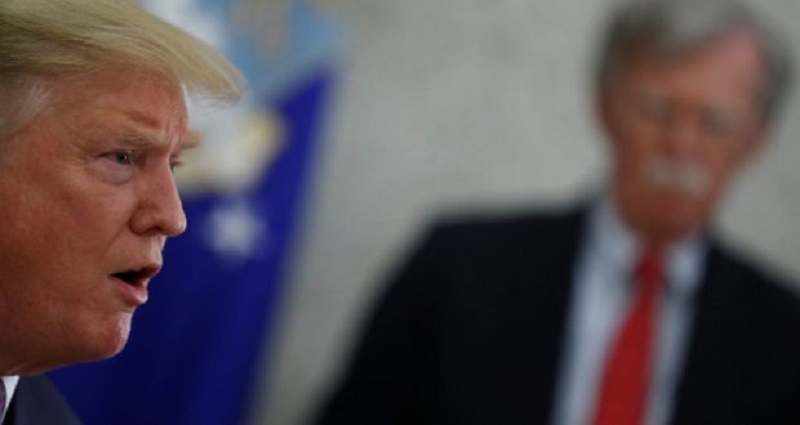GULF SIMMERS
| Date :16-Jun-2019 |

POSSIBILITY of a military conflict between the United States and Iran has escalated after the attack on oil tankers in the Gulf of Oman even as the development has rattled the international oil markets. As the world watches the Gulf simmer yet again, Washington is in an overdrive to demonstrate Tehran’s culpability in the “unprovoked” attacks. Things have taken an unfortunate spiral in the entire issue and can lead to ugly episodes in the near future, putting the oil economy at a huge risk. While Iran is blaming the United States President Mr. Donald Trump for employing “sabotage diplomacy” to target it, Pentagon has yet again found itself in a peculiar position.
On one hand it is trying to exert maximum pressure on Tehran by threatening severe punishment, on the other hand it has the job to reassure its Arab allies that they would not be drawn into a war, if Washington decides to use military power. The beefing up of defenses in the Persian Gulf area is a warning for Iran about a possible armed combat but it has remained an old strategy by the US that seeks to browbeat its opponents by displaying its military might. Mr. Trump is explicit in blaming Iran for the attacks near the strategic Strait of Hormuz. He has some grainy videos released by the US Military illustrating Iran’s involvement in the attacks on the tankers and another clip of Iran’s Revolutionary Guards removing an unexploded mine from one of the oil tankers.
Veracity of those videos is a matter of interpretation for the world, for, owner of one of the oil tankers has reportedly challenged the US account that Iranian naval boats were employed to bring the mines. On the face of it, Mr. Trump is yet again using the strategy of using force and threats with direct accusations to yield the opposition into negotiations. He did it with North Korea before claiming victory of bringing Mr. Kim Jong-un to the table. Now the same book is being used against Iran. For the US, Iran is its primary adversary in the Middle East where it has forged great ties with Tehran’s sworn enemies. By describing Iran as a nation of terror, the Trump administration has showed great urgency in imposing back-breaking sanctions after hasty withdrawal from a nuclear deal.
The withdrawal itself was seen as a flawed step by many of Washington’s European allies, for, breaking the deal had taken away the right of negotiations from the United States. With both countries escalating the rhetoric of war, it has become a matter of concern for the allies. They believe that Trump would allow the conflict to erupt further because of his hawkish policies that are backed by some of his close advisors. Nobody wants a war in the Gulf. That is not in anyone’s interest. It would be wise for all the players to heed the appeals from European nations and de-escalate tension. Provoking a nation already crippled by economic meltdown into a military conflict will serve no purpose. Instead, the world community and countries that are in direct proximity of the conflict zone should take it upon themselves to launch investigation into the attacks and punish the guilty. War is present times, especially in the oil zones, will leave everyone on the losing side.